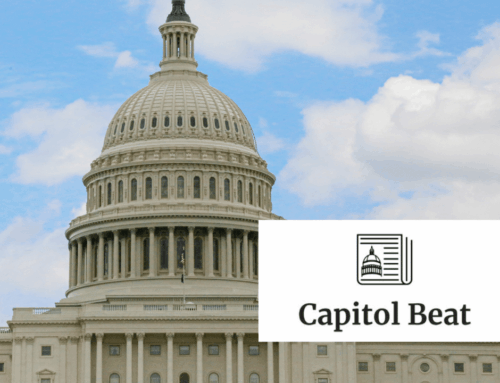Did you hear? The Senate is going to delay its traditional summer recess.
It’s going to stay in session until mid-August. Without the extra time, Congress had all of three weeks until it headed back home – not enough to tackle the legislative backlog facing lawmakers.
But will the two extra weeks make a difference? Let’s see: Leadership has identified priorities, which include passing the Senate health care bill, adopting a fiscal year 2018 budget, making progress on appropriations bills and the National Defense Authorization Act, and clearing the path for tax reform.
That’s a lot. Just revising, rescoring and finding the 50 votes needed to pass the Better Care Reconciliation Act, the Senate’s health care legislation, is a huge task. The upper chamber is using the budget reconciliation process to consider the bill, which limits debate and obviates the need to get 60 votes to overcome a filibuster. But the points of disagreement within the Republican conference alone are significant. Senate Majority Leader McConnell, R-Ky., has indicated that if the Republican majority can’t muster the votes on its own, he will turn and start negotiating with Democrats on amending the Affordable Care Act, aka Obamacare, going forward.
That is definitely a lot to do in either time frame, three weeks or five. And that doesn’t even contemplate getting a final measure through the House and Senate and to the president’s desk.
Over on the House side, the budget committee has been struggling to develop a fiscal year 2018 budget resolution that both the conservative House Freedom Caucus and more moderate Republicans can support. Just as Senate leaders had hoped to wrap up health care before July 4, House leaders anticipated completing the budget much earlier in the year. The late release of the president’s budget request didn’t help, but the root of the disagreements are just like the health care disagreements in the Senate: one faction wants deeper cuts than the other does, particularly on the mandatory side of the budget ledger. The talk coming from the House makes it sound like it will, in fact, be able to vote on a budget this week.
The House’s delay in passing the budget has turned the appropriations process inside out. Normally, Congress adopts a budget resolution and that sets up the annual top-line spending level for the appropriations committee to divvy up among the dozen subcommittees writing the spending bills. This year, appropriators decided to work off the number being batted around the budget committee. But batting around is not the same thing as adopting a resolution, which actually binds the appropriations committee. The delayed House budget resolution does give Congress more time to figure out health care, because it pushes the joint 2018 House-Senate budget resolution back. The clock will stop on the effort to pass the health care bill once Congress sets up 2018 budget reconciliation, the intended vehicle for comprehensive tax reform.
Even if there was consensus on the substance of passing health care, the budget and moving on appropriations bills, the expanded five-week time table will still be tight. Moreover, these are hardly the only items on Congress’ plate. Off the front pages and the front-burner (at least for now) are several other important matters. Authorization for the Federal Aviation Administration and the National Flood Insurance Program will expire at the end of September if Congress takes no action. So will the Children’s Health Insurance Program. The Senate still has yet to confirm the president’s nominee for director of the Federal Bureau of Investigation, along with more than 100 other nominees for key positions.
Above all this, ticking away mercilessly like a metronome, the debt ceiling looms: Treasury Secretary Steven Mnuchin has asked Congress to raise the debt ceiling before the August recess, so far without linking any additional policy or spending cuts. Neither Speaker of the House Paul Ryan nor McConnell have suggested that will happen. In fact, it’s pretty clear that item will also join the September docket of work.
Will extra time help save Congress from kicking the can further down the road on appropriations, key reauthorizations and the debt ceiling? Even by taking the step of postponing the recess, Congress is demonstrating that with one party controlling all the levers of power, the well-worn pattern of governing by crisis is still the norm.
Given the depth of the disagreements, extra time to work could serve to harden the differences or overcome them. But it has been a surprising political season where the impossible and unthinkable seem to occur daily. Perhaps Congress will again pleasantly surprise the vast majority of taxpayers who rarely get as much time off each summer, and are paying much closer attention to where their tax dollars go – as it should be in a democracy.










